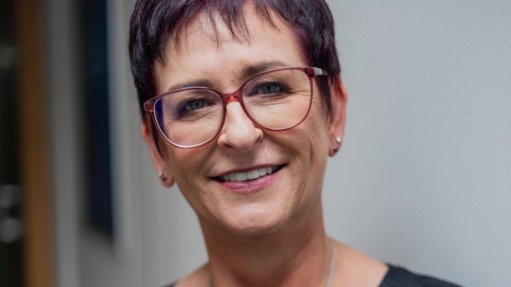Time is now to shift to transformational ESG partnerships in agriculture – panel

Time is now to shift to transformational ESG partnerships in agriculture – panel
With agriculture considered to be the foundation of civilisation and society, there must be a focus on transforming the agricultural sector from an extractive economy to a circular one, in which waste is minimised. Investment management company 27four alternative strategies head Werner Opperman believes this is “relatively easy” to achieve, but that it requires an incentive.
27four adds its environment, social and governance (ESG) angle to capital funding and investments that has benefits for food security, improves the social environment and leads to economic growth.
“For us, ESG and agriculture are not two separate aspects, but two sides of the same coin that can be fully integrated,” Opperman said in a recently held webinar that delved into whether ESG added real benefits to the agriculture sector.
Alcoholic beverage producer and marketer Distell acting corporate affairs director Eric Leong Son agreed with Opperman, stating that ESG “has never been more relevant to the world today”.
Building on Opperman’s comments, Son noted that an ecosystem – in which all can exist – required a lot of work, but that it could create value and prosperity for all.
From a policy perspective, meanwhile, advisory consultancy Pinpoint Sustainability independent adviser Nicola Jenkin said that looking at the larger agricultural and food system in general, one also needed to consider the sustainability aspect, and the need for traceability.
She urged industry members and stakeholders to consider the origin of products.
“This was exacerbated by Covid-19, although it has always existed in countries like South Africa, where we have this real dichotomy between large-scale commercial, highly technical agricultural system and production methods for the export market, through smaller farmers.”
She was concerned about the “power dynamics” of the system, and the subsequent flow of food from farms, their accessibility and therefore, food security. Resolving these issues and concerns, she added, was why ESG was particularly pertinent for Africa.
Strategy advisory Strategic Mindsets founder Wendy Poulton, who facilitated the discussion, highlighted that there were many opportunities for agricultural development in Africa, given the land and water that was available.
However, business and sustainability models must be harmonised to ensure that complying with ESG requirements did not become onerous.
“If your ESG strategy is not connected to your business strategy, you are running two parallel systems,” said Son.
When ESG is integrated into an organisation’s business model, it can better control sustainability and continuity plans, increase access to markets through more mature partnerships and have increased access to funding opportunities.
“To make it all work for your organisation, your governance will need to be more robust because there is a lot more peer collaboration,” he advised.
Adding to this, Jenkins suggested that rather than viewing profitability and sustainability as separate, one needed to "identify how you can contribute to the common good, which may be your local system or community, and how you can thereby bring value to your company”.
Amid opportunities to ensure food security, Son highlighted the importance of data centralisation and ensuring transparency in understanding the roadmap ahead.
“We need to be proactive on things like water scarcity and other challenges, and focus on small business development and living wages,” he stated, noting that these needed to be tackled in order to create additional opportunities.
“If you want to take it at the macro level, I think the time is right to shift from this transactional partnership to a more transformational partnership in the ecosystem. This means that when you look at the private sector, funding agencies, civil society, government, municipalities and farmers it is hard to create this alignment of interests,” Son elaborated.
Article Enquiry
Email Article
Save Article
Feedback
To advertise email advertising@creamermedia.co.za or click here
Press Office
Announcements
What's On
Subscribe to improve your user experience...
Option 1 (equivalent of R125 a month):
Receive a weekly copy of Creamer Media's Engineering News & Mining Weekly magazine
(print copy for those in South Africa and e-magazine for those outside of South Africa)
Receive daily email newsletters
Access to full search results
Access archive of magazine back copies
Access to Projects in Progress
Access to ONE Research Report of your choice in PDF format
Option 2 (equivalent of R375 a month):
All benefits from Option 1
PLUS
Access to Creamer Media's Research Channel Africa for ALL Research Reports, in PDF format, on various industrial and mining sectors
including Electricity; Water; Energy Transition; Hydrogen; Roads, Rail and Ports; Coal; Gold; Platinum; Battery Metals; etc.
Already a subscriber?
Forgotten your password?
Receive weekly copy of Creamer Media's Engineering News & Mining Weekly magazine (print copy for those in South Africa and e-magazine for those outside of South Africa)
➕
Recieve daily email newsletters
➕
Access to full search results
➕
Access archive of magazine back copies
➕
Access to Projects in Progress
➕
Access to ONE Research Report of your choice in PDF format
RESEARCH CHANNEL AFRICA
R4500 (equivalent of R375 a month)
SUBSCRIBEAll benefits from Option 1
➕
Access to Creamer Media's Research Channel Africa for ALL Research Reports on various industrial and mining sectors, in PDF format, including on:
Electricity
➕
Water
➕
Energy Transition
➕
Hydrogen
➕
Roads, Rail and Ports
➕
Coal
➕
Gold
➕
Platinum
➕
Battery Metals
➕
etc.
Receive all benefits from Option 1 or Option 2 delivered to numerous people at your company
➕
Multiple User names and Passwords for simultaneous log-ins
➕
Intranet integration access to all in your organisation



















